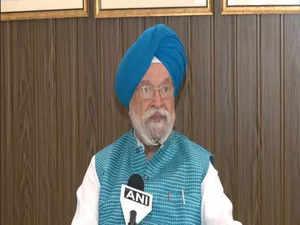
Affordable fuel, not free market doctrine, is priority: Oil Minister Hardeep Puri
Oil Minister Hardeep Puri defended India's control over pump prices, prioritizing affordable fuel for consumers over free market principles. Speaking at an energy conference, Puri highlighted the government's commitment to ensuring availability and affordability rather than adhering strictly to global market doctrines. He expressed concerns about India's heavy reliance on imported crude and emphasized the role of the exploration and production sector in achieving energy self-sufficiency and economic growth. Puri also announced the formation of a committee to address industry issues collaboratively.
The government's commitment is to make affordable fuel available to consumers rather than uphold free market doctrine, oil minister Hardeep Puri has said, defending a de facto control over pump prices in India over the last two years.
"They say the market is deregulated.
Why are you trying to control?" Puri told an energy sector conference organised by the Directorate General of Hydrocarbons (DGH). "Who is my commitment to? Is my commitment to ensuring availability and affordability to my consumer or is it to some doctrine which was produced in some part of the world and in following that doctrine, I then land up with chaos here.
" Domestic petrol and diesel rates have rarely followed international price trends in the past two years, staying almost at the same level, except to adjust for tax changes.
Retail prices of petrol were deregulated in 2010 and diesel in 2014 and both rates roughly followed the global fuel price trends in the succeeding years.
But domestic prices delinked from global rates soon after the onset of the Ukraine war in early 2022 sent global fuel prices skyward.
Puri told the gathering of industry executives and policymakers that he found it particularly discomforting that India imported 85% of its crude requirement.
"The exploration and production (E&P) sector is integral in our journey towards energy self-sufficiency, which is critical for sustained economic growth," Puri said, adding that E&P offered investment opportunities worth $100 billion by 2030.
Only 10% of India's sedimentary basin area is under exploration today, Puri said.
The share will rise to 16% after the award of blocks by the end of 2024, he added.
Puri also announced the formation of a committee comprising representatives from private and state oil companies, the petroleum ministry and DGH.
